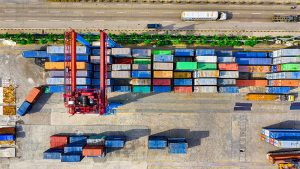
As activity commences, companies are considering moving into these zones, allowing them to take advantage of the wide range of benefits and incentives available. Operating from a designated freeport zone could benefit from some or all of the following:
- Tax reliefs
- Simplified customs procedures
- Streamlined planning processes
- Government support to encourage innovation and regeneration
Five more freeports are currently planned for England, with more expected to open across the UK. Transport, logistics and manufacturing companies may find relocating to one of the nominated sites provides significant commercial rewards.
Considering the right freeport
It is important for businesses to consider the positives and negatives of moving to a freeport and which freeport is most suitable. Every freeport has a different industry hub. Businesses should consider whether their activities fit with the specific freeport they are considering. Some freeports have already created trade corridors with other jurisdictions.
- Thames Freeport connects Ford’s Dagenham engine plant with international ports at both London Gateway and Tilbury. Goods here are predominantly automotive or other mechanical parts.
- Teesside Freeport has particularly strong links with the on and offshore wind turbine manufacturing sector.
- Freeport East, which includes Felixstowe and Harwich, is home to the planned East Hydrogen Hub. This will undoubtedly create several innovative schemes around nuclear, hydrogen, maritime and transport decarbonisation.
Single Authorisation customs procedure
Using a simplified customs procedure, known as a Single Authorisation, companies operating inside the designated areas of a freeport can import goods without paying tariffs,. Once it has been secured, this single authorisation applies to goods imported for a variety of purposes such as:
- Temporary admission
- Inward processing
- Customs warehousing
Manufacturers at the freeport use these imports to make or assemble products, which can then be exported again tariff-free. It should be noted however, a tariff may be payable on the finished product when it reaches its final destination.
Preparing to relocate
Once a decision has been made, businesses should prepare in the following ways:
1. Assessing the suitability of the freeport
Carry out a careful assessment to ascertain whether relocating to a specific freeport would be beneficial. Key areas to consider include whether any existing customers are already in the freeport and whether trade corridors already in existence could be utilised. For businesses with excellent sustainability credentials, or those who plan to invest in innovation, relocating to a freeport may also ensure they qualify for Government-backed incentives.
2. Registering interest at HMRC
Those looking to relocate to a freeport should register their interest with HMRC. Prior to doing this, they should contact the freeport owner to discuss an initial agreement of their plans to operate from the port.
3. Optimising tax benefits
Businesses should look to optimise the benefit of shifting operations to the freeport. If it is located in a tax site of the freeport, it could benefit from:
- Possible savings from tariff-free imports and streamlined customs procedures
- Decreased National Insurance Contributions (NICs) liabilities
- Up to 100% relief from business rates on certain premises
- Stamp Duty Land Tax exemptions
- Enhanced Structural Buildings Allowances available when acquiring qualifying land and property
- Enhanced capital allowances when investing in qualifying new plant and machinery
4. Maximising investment in innovation
Advice should be sought if the business plans to invest in new software or processes as part of the move to the freeport, as it might qualify for R&D tax relief. There is also a potential to review and streamline operations. Examples of this include data sharing between businesses and the development of a dedicated portal for submitting customs declarations, licences and other documents.
5. Adopting stringent procedures and record-keeping
If seeking Single Authorisation status for customs declarations, businesses will be required to demonstrate stringent record-keeping procedures. They will also need to meet specific safety and security standards.
Prepare to take advantage of the new freeports: webinar recording
Menzies and the Institute of Export and International Trade discuss:
- The benefits for your business and if a Freeport suits your business model
- How best to prepare, in order to weigh up the benefits
- If you decide a Freeport is suited to your business, what should the next steps be?
- The future timeline for Freeports starting to operate
The recording can be found here:
https://www.youtube.com/watch?v=wymmr3sH9Zw


























